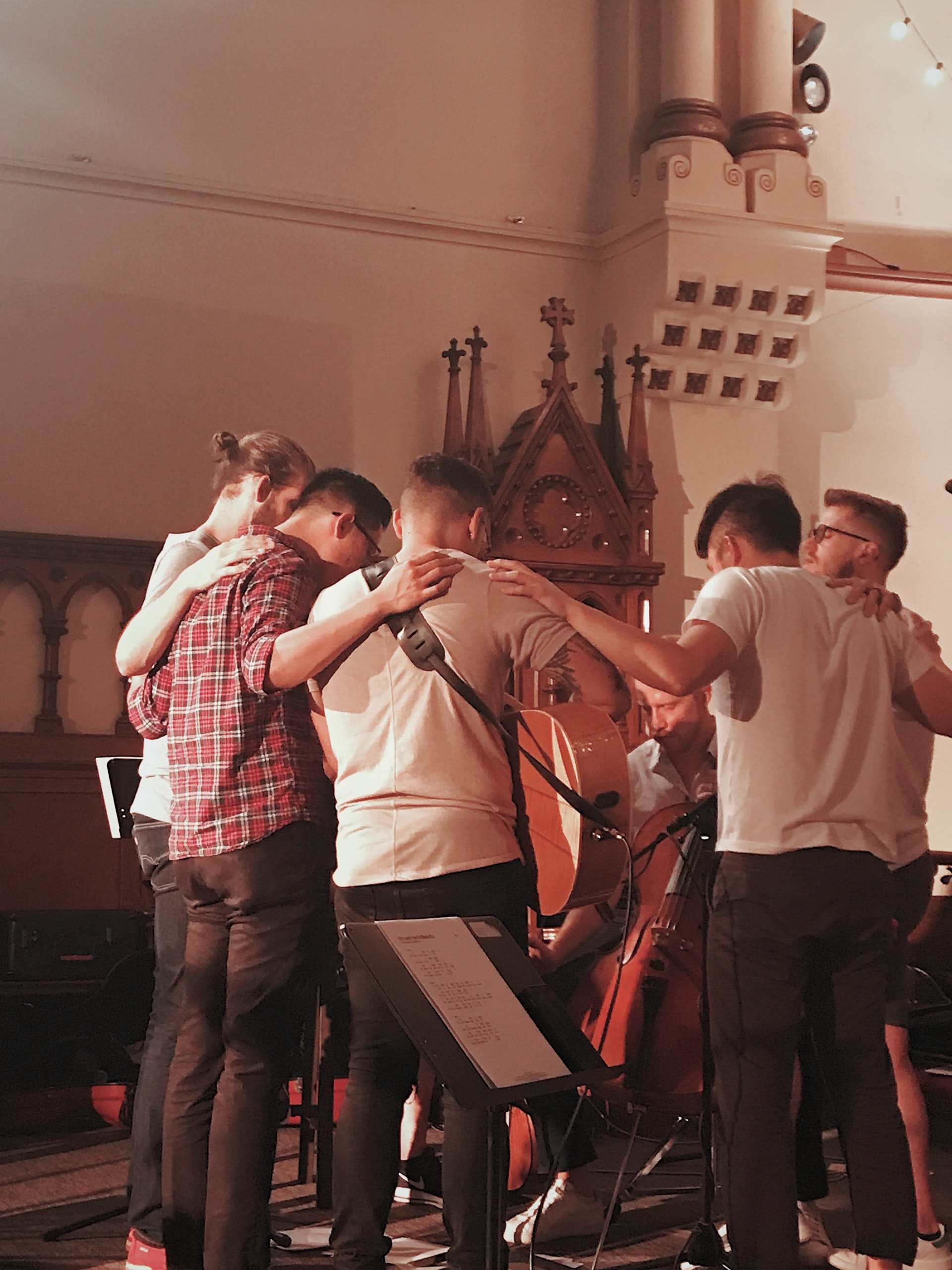Am I Missing God’s Design?
Am I Missing God’s Design?
Life isn’t always easy.
Sometimes it is pleasant to do God’s will, and sometimes it is difficult. Abraham faced one of those difficult times.
God had given Abraham a promise that he would be the father of a great nation. But years passed and no fulfillment came. The plan Abraham and Sarah made to bring about God’s promise ended in heartache. Then God spoke again to Abraham and reminded him of His promise. Finally, that promise was fulfilled in the miraculous birth of Isaac. But Abraham’s testing was not over.
A few years later, God told Abraham to offer Isaac—the son whom he loved—to Him on the mountain Moriah. Abraham was challenged to obey God in spite of his feelings, circumstances, and personal desire. Abraham met this challenge. He obeyed God’s will and experienced a great miracle: God supplied a ram as a substitute for Isaac (Genesis 22:1-19). You may be facing a similar challenge. God may be using certain circumstances in your life to test your faith also. In this lesson we will study how our circumstances are related to God’s design for us. As you study, you will discover some of the ways in which God can use circumstances to help fulfill His design in your life.
Circumstances Raise Questions
There are times when it seems God’s will is confirmed by circumstances. There are other times when visible circumstances make doing what we know God wants us to do very difficult. Are difficulties an indication that we are missing God? Is it possible to know what God’s will is by how hard or easy it seems to be? What happens if it appears to be impossible, that is, if all outward conditions seem in opposition to doing what we think God wants us to do? Let us consider the relationship our circumstances have to God’s design or will for us.
Circumstances can Test our Faith
We learn how trustworthy a thing is by testing it. Sailors would want to test a boat by using it in a lake or harbor before trying to cross the ocean in it. Mountain climbers would want to test the strength of a rope before having to trust their lives to it when climbing a steep cliff.
On some occasions God seems to use difficult circumstances to test our faith. He tests our faith because it is our direct link with Him; He works through it. Without faith, nothing we do fits into His design for us or is satisfactory to Him (Hebrews 11:6).
Testing Reveals Our Faith
Some people think that they trust God when, in fact, they have never really had to trust Him. Circumstances and events have always supported their trust in God and have made doing the will of God the easy thing to do. In many cases they are doing what they want to do, and what they want to do happens to be God’s will. How trustworthy is this faith?
God wants us to see how much we are really trusting Him. To show us this, He may allow outward supports and helps to be taken away. This may appear to make obedience difficult; it may even make us wonder if we really are in the will of God.
But if we do not allow God to test us and show us how much we are really trusting Him, the weakness in our faith will not be seen until Satan attacks.
Peter was sure of his loyalty to Christ. His own opinion was that he had more devotion than anyone else. Before Jesus’ trial, Peter told Him, “I will never leave you, even though all the rest do!” (Matthew 26:33).
Testing Builds Our Faith
The testing of our faith through negative circumstances can also show us how much we are able to trust God. It can help build our faith.
No doubt Abraham’s experience on Mount Moriah was a great victory of faith, the greatest he had won. He had been brought right up to the moment of sacrificing his son when God showed him the ram he was to offer instead. He had obeyed in spite of the difficulty; his faith was tested and proven. Now he had learned that God could supply a sacrifice; now he had learned that God could keep his family.
In 1 Samuel 17 we read of the time when David faced Goliath, a powerful enemy of Israel. It would be impossible for a young man like David to defeat a huge warrior like Goliath! But when David heard Goliath’s challenge, he was ready to fight him.
Circumstances can Discipline Us
Difficult circumstances that arise as we try to follow God’s will can also discipline us. The purpose of this discipline is to direct our effort toward the goal God has set for us. Some think discipline means punishment, but in fact, punishment is not necessary to discipline. It becomes necessary only when there is a failure to respond to true discipline. Discipline is training; it is the choosing of certain activities in order to accomplish an objective.
In sports, discipline is learning to conform to the rules in order to win a game. Activity outside of the rules not only uses energy worthlessly but is also counterproductive. It is penalized. Discipline may involve a program of conditioning. In sports this means that the athlete deliberately faces resistance in order to become stronger. It is easy to see the connection between the idea of being disciplined and that of being a disciple. The twelve disciples of Christ were men disciplined to do His will. As we read the accounts of their lives, we see that Christ constantly allowed them, even led them, to face difficulties. These experiences were part of their training.
They were in a boat with Christ in a dangerous storm, but Christ did not seem to be doing anything about it. He was sleeping (Mark 4:35-41). Nine of them were left at the bottom of the mountain on which Christ was transfigured. There they were faced with a demon-possessed boy (Mark 9:14-29).
Circumstances can Encourage Us
It is true that difficult circumstances test our faith and discipline us. But those same problems can be a source of encouragement, depending on how we react to them and to what we know to be the will of God. Let us consider three aspects of this encouragement.
Proof That We Belong to God
First, difficulties can give us proof that we belong to God. The Scripture is clear about the forces of evil that are in the world. Satan is the enemy of the follower of Christ. He withstands the progress of the kingdom of God at every opportunity. Satan does this deliberately, willfully, maliciously. He is powerful, though his power is limited. He is even more deceptive than powerful; he is the father of lies.
 Satan is the enemy of the Christian and so is the world system. This system is not one of righteousness. It is one built on deceit, oppression, and injustice. It is a twisted system, with humanity calling evil good and good evil. It is a system of promise without fulfillment, knowledge without truth. It is a system that is opposed to God and to the child of God. It is a system that rejected and then crucified the Son of God because He was righteous; His righteousness aroused the hatred of the system.
Satan is the enemy of the Christian and so is the world system. This system is not one of righteousness. It is one built on deceit, oppression, and injustice. It is a twisted system, with humanity calling evil good and good evil. It is a system of promise without fulfillment, knowledge without truth. It is a system that is opposed to God and to the child of God. It is a system that rejected and then crucified the Son of God because He was righteous; His righteousness aroused the hatred of the system.
What, then, do the children of God expect when they begin to follow the will of God? They live in a twisted environment and are trying to walk a straight path. In a dark world they want to follow light. Never does Scripture show God’s will as being in conformity with the system or even at peaceful coexistence with it. The two are in warfare, friction, conflict, and confrontation. Christ said: “The world will make you suffer. But be brave! I have defeated the world!” (John 16:33).
Instead of difficulty making us wonder if we have missed the will of God, it could very well be an indicator—one promised by Christ—that we are in His will. This is especially true if the difficulty has come because of the contrast between the system of evil and our own righteous lives.
In Luke 6:20-26, notice the encouragement given to the disciples in verses 20-23. They are to be directly encouraged by the difficulties! At the same time, notice the warnings they are given in verses 24-26. These warnings are directly related to receiving approval from the world system.
Opportunities for Victory
Second, difficulties can give us opportunities for victory. It is from the world system and being in the world that our tribulations come. But Christ has already conquered this world system.
Difficulties and opposition do not make it impossible to do God’s will; the problems can be defeated. They actually make victory possible, for there must be conflict for there to be victory. We are overcomers and more than conquerors through Christ.
The character of a person can be discerned by looking at his or her enemies as well as at his or her friends. The Bible says that being a friend of the world is the same as being an enemy of God (James 4:4). This means that if we are the friends of God, we will be the enemies of the world.
Does a conqueror seek the approval of a defeated foe? Neither do we want to lose the discipline of keeping our attention on God by pursuing the approval or cooperation of the world system. On the contrary, the experience of victory over it gives us new determination to follow God.
Confidence From Opposition
Third, difficulties can give us confidence that we are trying to please God. We mentioned the problems with both Satan and the world system and how those problems can be a source of encouragement. There is a third area in which we face difficulties. It is called in Scripture “the human nature,” “the sinful nature,” or “the flesh.” It is not the physical body itself. It is that part of ourselves which agrees with and desires what the world offers.
It is bad enough to have Satan as an enemy. Besides this, we live in a fallen world with the system it has produced. But a greater difficulty is that we are joined to an enemy of God—our human nature. We cannot divorce ourselves from it; again, we have to conquer. But to conquer, there will be a battle.
Galatians 5 gives a list of the works of the flesh or human nature. It is not a complete list, but it names enough of them so we are able to recognize others that are unmentioned.
How can the opposition of the flesh or human nature encourage us? Knowing there is unceasing warfare between the flesh and the Spirit of God gives us confidence that when we refuse to follow the flesh we are pleasing God. If we were living simply according to our flesh, there would be no battle. The flesh does not battle the flesh; the battle is between flesh and Spirit.
